Guardianship Services – Frequently Asked Questions
1. When is a guardian needed for someone?
When someone cannot fully make decisions for themselves due to either a vulnerability of being exploited/harmed or a barrier to communication or understanding, a guardian is appointed to help make decisions for them. This could be a family member, or a Certified Professional Guardian (CPG) who has the best interest of the client in mind helping them to make unbiased decisions.
2. How are Bridge Disability Ministries’ guardians monitored?
All our guardianship relations are overseen by County Superior Courts.
3. What programs can you help the client navigate?
Our guardians can help navigate government programs such as Social Security, Department of Social and Health Services, Veteran’s Administration, etc. Our representative payees can help navigate payments to and from Social Security, household billers, care agencies, state trusts, landlords, and personal purchases.
4. How do guardians interact with their clients?
Our guardians are very involved in the affairs of their clients, making sure they are taken care of with the highest respect and making decisions without bias in the best interest of their clients. They consistently monitor and check-in on their clients and their living/financial situations to be sure of this.
5. Will I still be involved in my family member’s care if they are appointed a CPG?
Our team keeps very open communication with our client’s family members, and involves them in as much decision making as they would like to be involved in.
6. How do I get started with this process if I am interested?
Overseeing decisions and quality care for a person with intellectual or developmental disabilities can be complicated and stressful. Give us a call and ask for either Michelle or Zoe. Either of us is happy to discuss your needs and answer questions regarding Guardianship with Bridge Disability Ministries or other options and alternatives.
